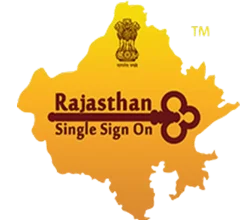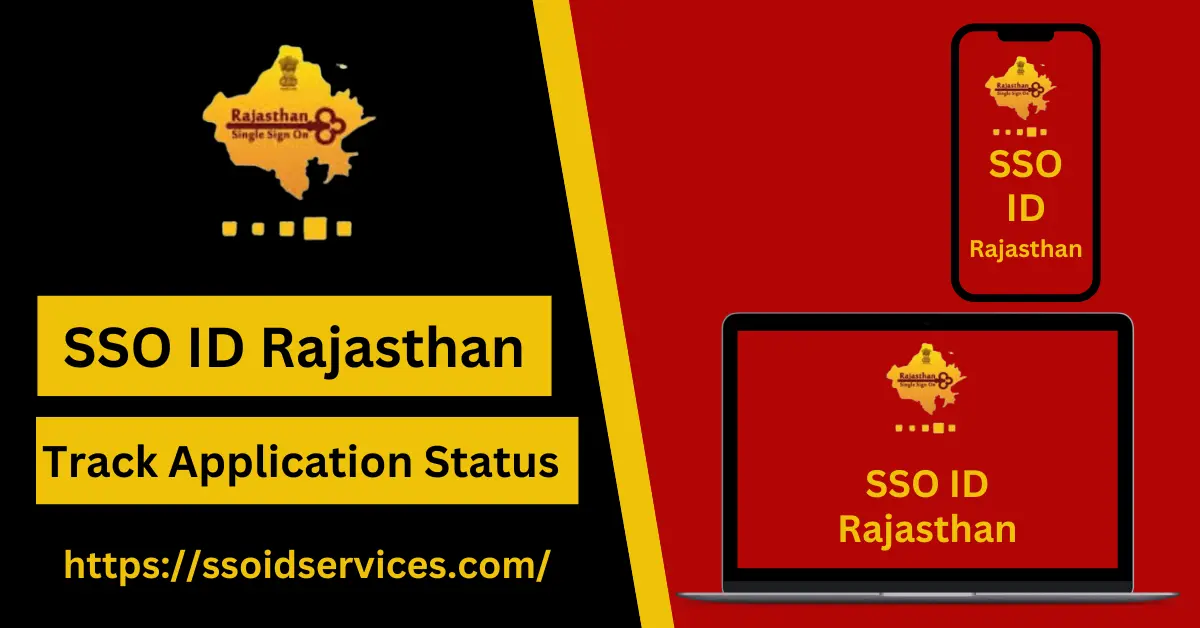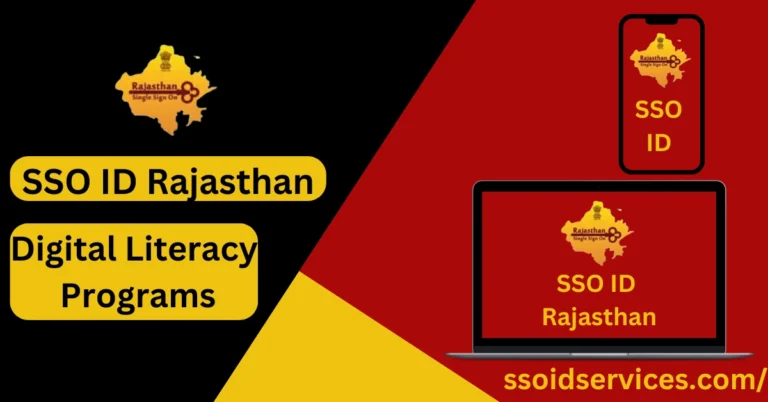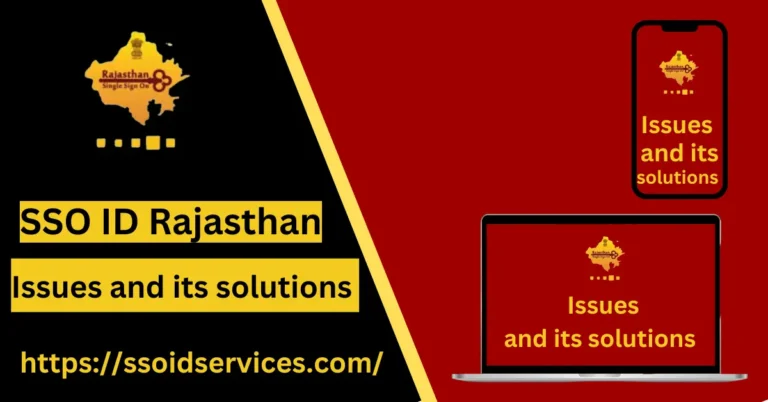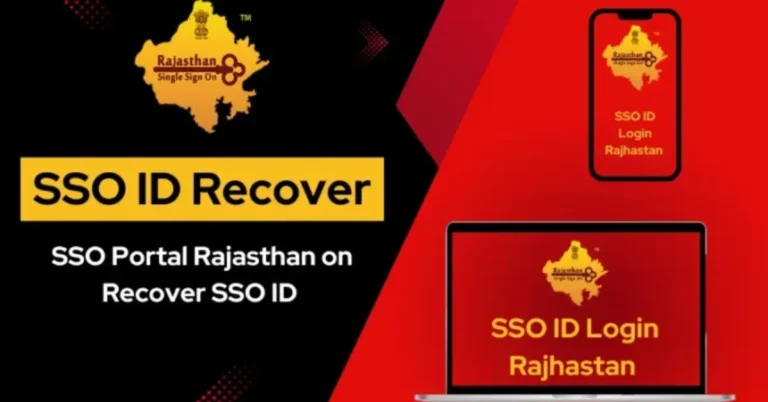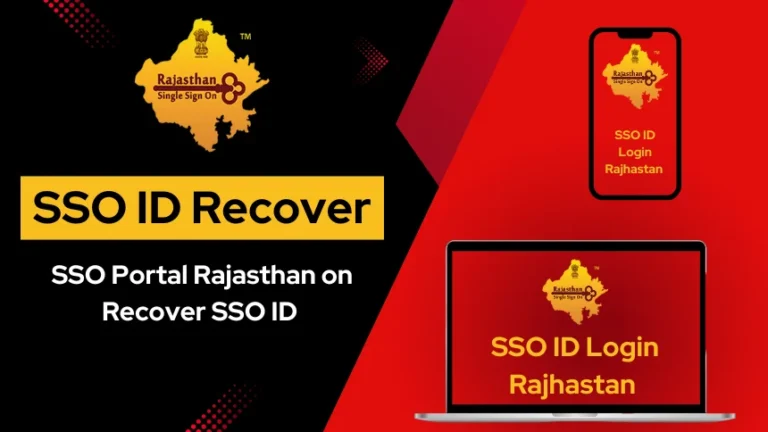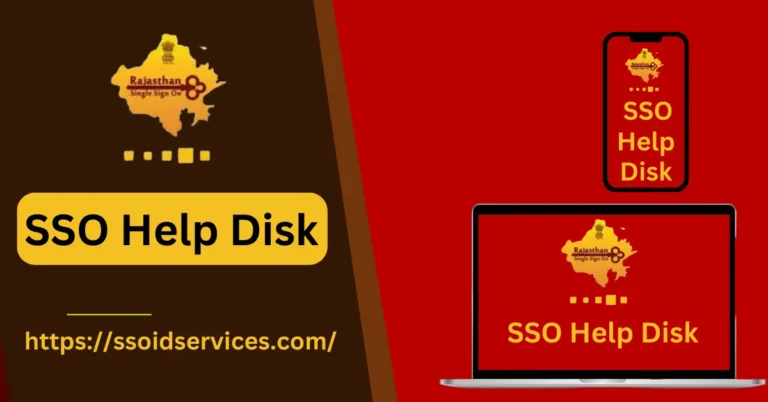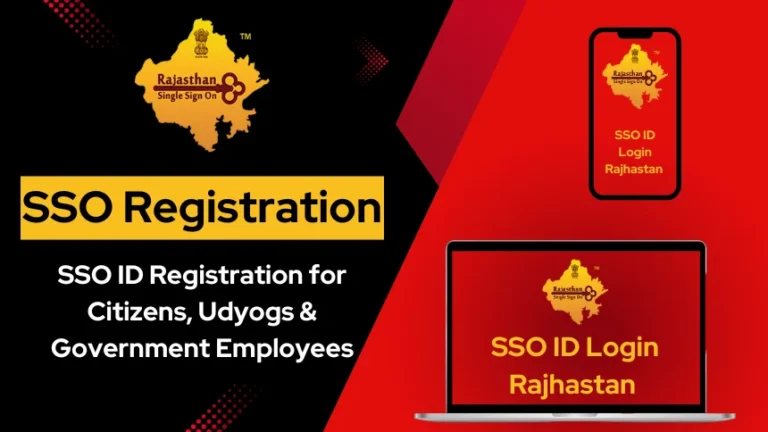How to Track Application Status Using SSO ID Rajasthan
How to Track : The digital age has seen government services increasingly provided online, for the convenience and comfort of citizens. Rajasthan Government has implemented Single Sign On IDs (SSO) to allow residents of Rajasthan access to multiple online services with just one login. SSO-IDs are useful for tracking applications to multiple departments. This article offers a thorough analysis of the process for tracking applications status by using SSO Id Rajasthan.
Also Read: SSO Rajasthan Comprehensive Guide: How to Apply for Different Certificates
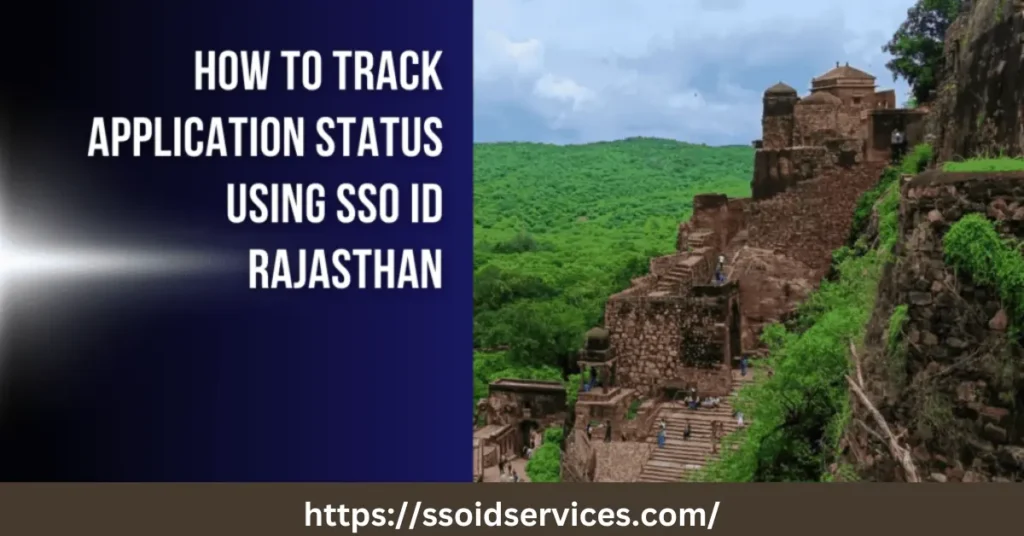
How to Track SSO ID Rajasthan: Introduction
SSO ID Rajasthan (Single Sign-On ID) is an integrated platform that was created by the Rajasthani Government in order to improve access to online service. It allows the citizens to have a unique user name and password that they can use to log in to different services offered by government departments. For example, applying for licences, scholarships or certificates. SSO ID centralization is meant to enhance the user’s experience, improve efficiency and decrease redundancy.
Use SSO Id to Track the Status of Your Application
1. User Interface and Experience
SSO ID Rajasthan’s user interface (UI), and user experience in general (UX), are two of the key elements to tracking an application’s status. The user interface should be intuitive and simple to use so that the users are able to find what they’re looking for. SSO Portals must be user-friendly, with clear instructions on how to use the portal and track applications.
2. Get Real-time Updates
It is important to be able to update the application in real time. For this to work, the SSO platform and respective departmental database must seamlessly integrate. This is because real-time updates provide users with transparency and build trust, since they can track the progress of an application without delays.
3. Protection and privacy
Securing sensitive data and accessing sensitive personal information is a priority. Data protection must be protected by robust encryption, secure protocols and a platform that uses strong encryption. SSO users can track the status of their applications using a secure portal.
4. Accessibility
For any government service, accessibility is an important consideration. SSO Portal should accommodate those users who are digitally illiterate and have disabilities. Multilingual compatibility, easy navigation, and screen reader support can all improve accessibility.
The trade-offs when balancing different factors
Enhancing User Interface vs. Complexity in Implementation
An enhanced user interface may be necessary for an excellent user experience. However, this can increase the difficulty of implementation. Developing a UI both visually attractive and functionally useful requires a large amount of resources including designers and developers. A significant trade-off is to strike a balance that allows for both an intuitive and practical interface.
Comparing Real-Time updates with System Load
Real-time update is beneficial to users, but also puts a heavy load on systems. A robust infrastructure is needed to ensure continuous data synchronization. However, this can result in increased costs. A balance needs to be found between delivering timely updates and maintaining efficiency of the system.
Safety vs. The User Experience
While it is important to safeguard user information, robust security can compromise convenience. As an example, users may not want to use authentication methods that are too complex. For any digital platform, balancing security and usability is an ongoing challenge.
Challenges associated with different approach
Integration with Departmental Systems
The integration of SSO ID Rajasthan into departmental software systems presents a significant challenge to tracking applications status. As each department has different software, databases, and other systems to use seamless integration is difficult. Ensure compatibility, and ensure efficient data transfer between the systems.
Data Accuracy & Consistency
It is also a challenge to maintain data consistency. Any data inconsistencies can result in incorrect updates to application status, which causes confusion and frustration for users. It is vital to minimize this problem by using data synchronization and validation processes that are stringent.
Use of Digital Literacy and User Adoption
A constant challenge for the SSO ID is encouraging users to accept the system, and making sure they are digitally literate to be able to navigate through the portal. Although digital services have become more popular, there may be a small segment of people who are still unfamiliar with how to use them. For widespread adoption, it is essential to offer users adequate education and support.
It is important to consider the impacts
The Trust of the User
SSO ID Rajasthan improves user trust and satisfaction by allowing users to easily track their application status. The user experience improves when users are able track and access their application status. The positive experience of the user can result in higher adoption rates, and more engagement with other online services.
Administrative Efficiency
In the public sector, an SSO ID that is well-run can result in increased administrative efficiency. The centralization of application tracking, as well as the reduction in manual intervention required by departments allows them to optimize processes and better allocate resources. The result can be cost-savings and better service.
Transparency, Accountability and Responsibility
Effective governance is built on the principles of transparency and accountability. This ensures public institutions work in a transparent and responsible way. SSO’s ID System in Rajasthan helps to reinforce these principles because it provides users with access to real-time status updates. In several important ways, transparency is essential.
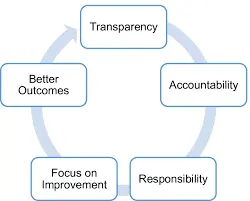
It gives citizens direct information about the status of their requests. Users no longer have to depend on intermediaries nor face the uncertainties of bureaucratic delay. Instead, they can confirm the status independently and at any moment. By providing immediate information, this reduces the risk of misinformation.
Second, updates in real time help reduce the chances of corruption. If the status of an application is made public, then it’s harder for individuals to try and manipulate the system for their own benefit. Transparency acts to deter corrupt activity, assuring that all applications receive a fair and impartial treatment.
Also Read: Accessing Health Services via SSO ID Rajasthan
Thirdly, SSO’s ID system promotes accountability among government departments. In addition, the system keeps a digital log of transactions and updates. These records can be reviewed for discrepancies. In order to maintain accountability, government officials must adhere to procedures and timelines.
In addition, transparency provided by SSO’s ID encourages efficiency within government processes. If citizens have the ability to monitor their application’s status, they are better able hold government accountable if there is any delay. It is this external pressure that motivates the government departments to optimize their operation and quickly resolve any issues.
SSO ID also fosters trust with citizens and government. Its increased transparency and accountability not only create a more fair and efficient system of governance, but they are also able to improve the relationship between them. Confidence in institutions of public service increases as people realize their government takes responsibility for transparency. This is vital for digital initiatives to succeed and for the general relationship between state and citizens.
SSO ID’s commitment to transparency and accountability helps ensure that all government processes take place in an open, honest, and transparent manner. Real-time application status information empowers users, reduces corruption, imposes accountability, enhances public trust, and encourages transparency. All of these factors contribute collectively to creating a transparent, accountable governance system in Rajasthan.
Closing remarks
SSO Rajasthan provides a useful feature for tracking the application status. It enhances user experiences and facilitates efficient governance. When balancing these factors, there are multiple key elements to take into consideration, such as user interfaces, real-time notifications, security, or accessibility. In order to improve the user experience while providing security and timely updates, there are tradeoffs that must be managed. Although there may be challenges, a positive impact is seen on the user’s satisfaction, efficiency in administration, and transparency.
Rajasthan can address these issues and overcome the challenges associated with them to make the SSOID system a more reliable, user-friendly tool for tracking the application status. SSO-ID will remain relevant and effective as digital services develop.
